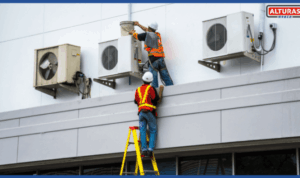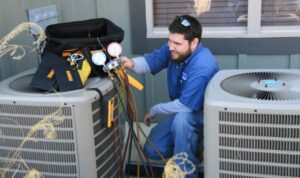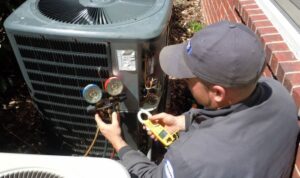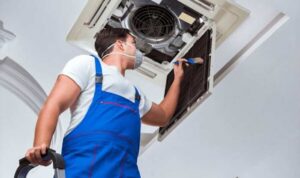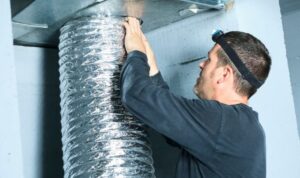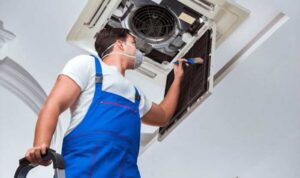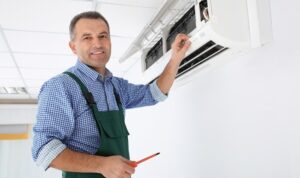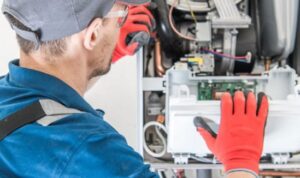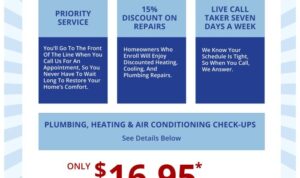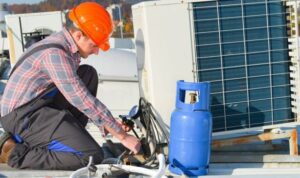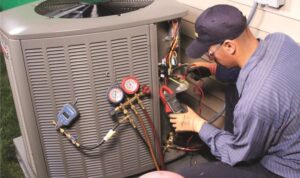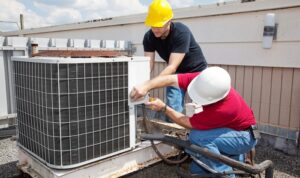When it comes to Carrier HVAC repair near me, there are crucial aspects to consider for efficient maintenance and timely fixes. Let's delve into the world of Carrier HVAC systems and explore the ins and outs of repair services available in your vicinity.
In this guide, we will cover the significance of maintaining Carrier HVAC units, common repair issues, reliable service providers, DIY troubleshooting tips, cost considerations, and much more. Get ready to enhance your knowledge on all things Carrier HVAC repair near you.
Introduction to Carrier HVAC Repair
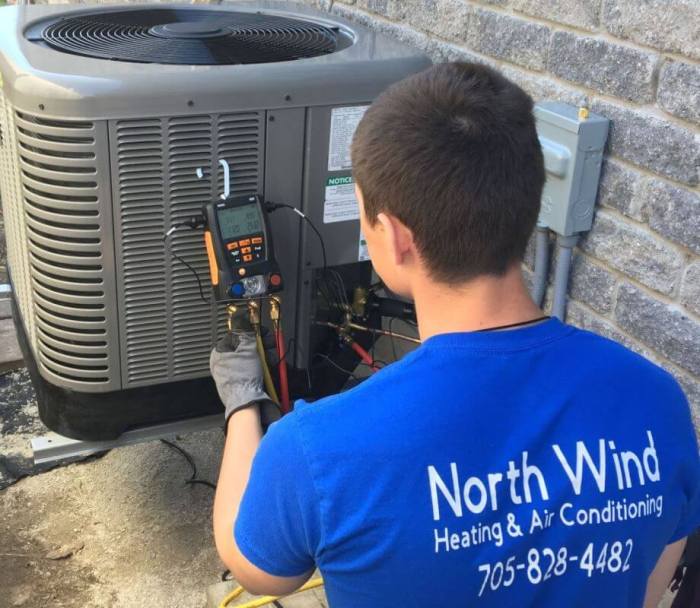
Maintaining Carrier HVAC systems is crucial to ensure optimal performance and energy efficiency in your home or commercial space. Regular maintenance and timely repairs can help prolong the lifespan of your Carrier HVAC unit and prevent costly breakdowns.
Common Issues Requiring Repair
- Refrigerant leaks: Low refrigerant levels can cause your Carrier HVAC system to work harder and less efficiently.
- Electrical failures: Faulty wiring or electrical components can lead to system malfunctions or even complete breakdowns.
- Thermostat problems: Inaccurate temperature readings or malfunctioning thermostats can affect the overall performance of your HVAC unit.
- Airflow issues: Blocked ducts or filters can restrict airflow and reduce the system's efficiency.
Benefits of Timely Carrier HVAC Repairs
- Improved efficiency: Timely repairs can help restore your Carrier HVAC system's efficiency, reducing energy consumption and utility bills.
- Extended lifespan: Regular maintenance and repairs can prolong the lifespan of your HVAC unit, saving you money on premature replacements.
- Enhanced comfort: A properly functioning Carrier HVAC system will ensure consistent and comfortable indoor temperatures throughout your space.
Finding a Reliable Carrier HVAC Repair Service
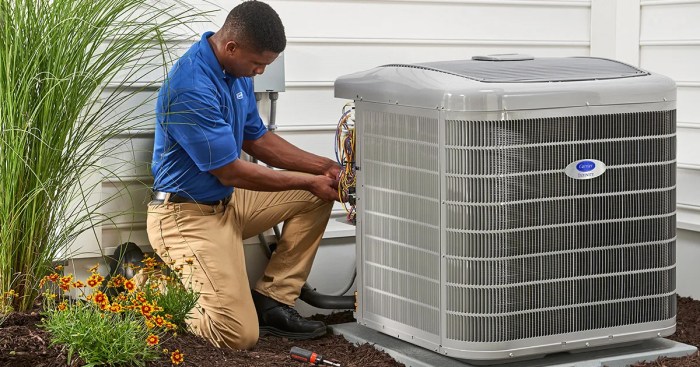
When looking for a reliable Carrier HVAC repair service near you, there are several key factors to consider to ensure you get the best service possible.
Importance of Choosing Certified Technicians
It is crucial to choose a Carrier HVAC repair service that employs certified technicians. Certified technicians have undergone training and have the necessary expertise to accurately diagnose and repair Carrier HVAC systems.
Tips for Evaluating Reputation and Reliability
Here are some tips for evaluating the reputation and reliability of Carrier HVAC repair companies:
- Check online reviews and ratings from previous customers to gauge the company's reputation.
- Ask for references and contact them to inquire about their experience with the company.
- Verify if the company is licensed and insured to ensure they meet industry standards.
- Inquire about the company's experience and how long they have been in business.
- Compare quotes from multiple companies to ensure you are getting a fair price for the services offered.
DIY Troubleshooting for Carrier HVAC Systems
When dealing with common issues in your Carrier HVAC system, there are steps you can take to troubleshoot the problem before calling a professional. Here is a guide to help you diagnose and potentially fix some of the most common problems that may arise.
1. Check the Thermostat
Start by checking the thermostat settings to ensure they are correctly configured. Make sure the thermostat is set to 'cool' or 'heat,' depending on your needs. Replace the batteries if necessary and ensure the thermostat is clean and free of dust.
2. Inspect the Air Filters
Dirty air filters can restrict airflow and cause your HVAC system to work harder than necessary. Check the air filters and replace them if they are dirty or clogged. This simple step can improve the efficiency of your system.
3. Check the Circuit Breaker
If your HVAC system is not turning on, check the circuit breaker to see if it has tripped. Reset the breaker if needed and monitor the system to see if it turns on. If the breaker continues to trip, there may be an underlying electrical issue that requires professional attention
4. Clean the Outdoor Unit
The outdoor unit of your Carrier HVAC system can accumulate dirt, debris, and leaves over time. Ensure the unit is clean and free of obstructions to allow for proper airflow. Use a hose to gently clean the unit and remove any blockages.
5. Monitor Strange Noises or Smells
If you notice unusual noises or odors coming from your HVAC system, it could be a sign of a more serious issue. Monitor these closely and consider calling a professional if the problem persists or worsens.
6. Safety Precautions
- Always turn off the power to your HVAC system before attempting any DIY repairs.
- Wear appropriate safety gear, such as gloves and eye protection, when working on your system.
- Avoid touching any electrical components if you are not familiar with HVAC systems.
- If in doubt, contact a professional HVAC technician to avoid any potential safety hazards.
Cost Considerations for Carrier HVAC Repairs
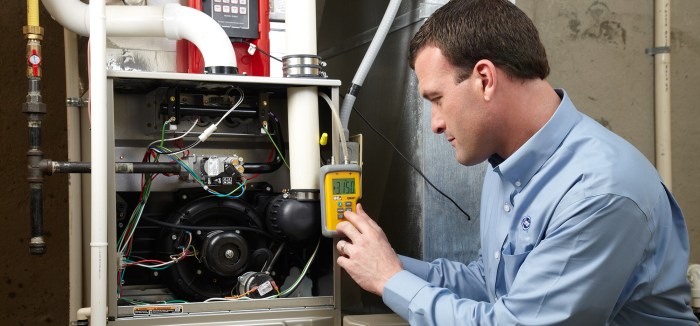
When it comes to repairing Carrier HVAC systems, cost considerations play a significant role in decision-making. Understanding the average costs of repairing different components, as well as the factors that can influence these costs, can help you budget effectively and save on expenses.
Average Costs of Repairing Different Components
- Compressor: The average cost to repair or replace a compressor in a Carrier HVAC system can range from $1,200 to $2,800, including labor costs.
- Evaporator Coil: Repairing or replacing an evaporator coil can cost between $650 to $1,200, depending on the model and size of the unit.
- Thermostat: A faulty thermostat can be repaired or replaced for an average cost of $150 to $300, including installation.
Factors Influencing Repair Costs
- Age of the System: Older Carrier HVAC units may require more extensive repairs, leading to higher costs.
- Extent of Damage: The severity of the issue and the extent of damage to components can impact repair costs.
- Warranty Coverage: If your Carrier HVAC system is still under warranty, some repair costs may be covered by the manufacturer.
- Professional Service: Hiring a reputable and experienced HVAC technician can affect repair costs, as quality service may come at a higher price.
Tips for Budgeting and Saving on Repair Expenses
- Regular Maintenance: Schedule routine maintenance for your Carrier HVAC system to prevent costly repairs in the future.
- Compare Quotes: Get multiple quotes from different HVAC repair services to find the most competitive price for the required repairs.
- DIY Troubleshooting: For minor issues, consider troubleshooting and performing simple repairs yourself to save on labor costs.
- Energy Efficiency: Invest in energy-efficient upgrades for your Carrier HVAC system to reduce overall operating costs and potential repair needs.
Outcome Summary
In conclusion, having a reliable Carrier HVAC repair service near you can ensure the longevity and efficiency of your system. By understanding the importance of timely repairs, choosing certified technicians, and exploring DIY troubleshooting options, you can make informed decisions to keep your Carrier HVAC unit in top condition.
Take charge of your HVAC system's maintenance and enjoy a comfortable indoor environment year-round.
FAQ
What are the benefits of timely Carrier HVAC repairs?
Timely repairs can prevent further damage, improve energy efficiency, and prolong the lifespan of your Carrier HVAC system.
How can I find a reliable Carrier HVAC repair service near me?
Consider factors like certifications, reviews, and experience when selecting a Carrier HVAC repair service in your area.
Are DIY troubleshooting methods safe for Carrier HVAC systems?
While some basic DIY troubleshooting can be safe, it's important to follow safety precautions and consult professionals for complex issues.
What factors can influence the cost of repairing Carrier HVAC units?
Factors like the extent of damage, type of repair needed, and labor costs can influence the overall cost of repairing Carrier HVAC units.

